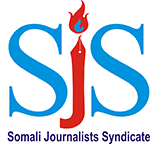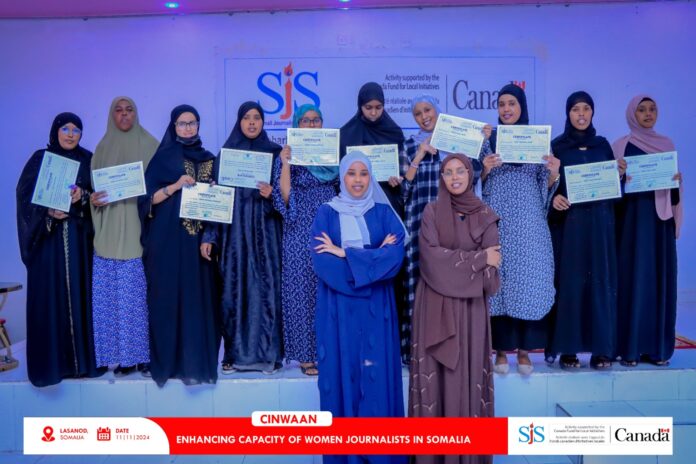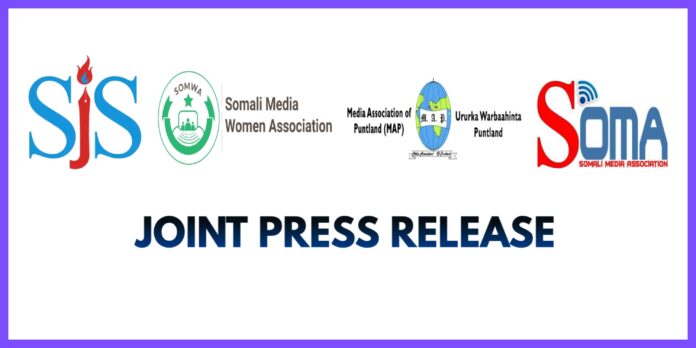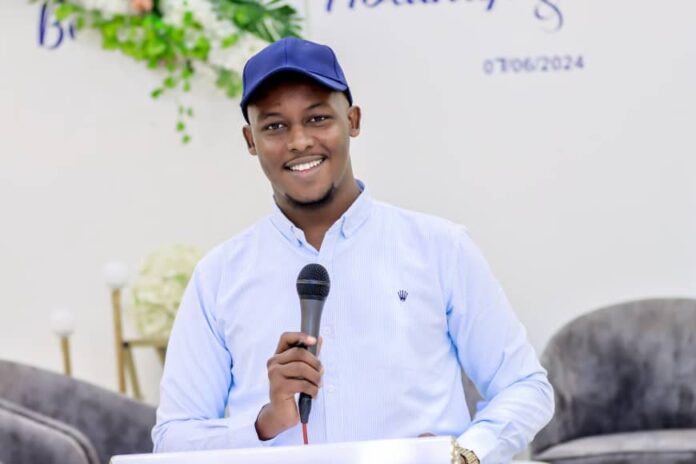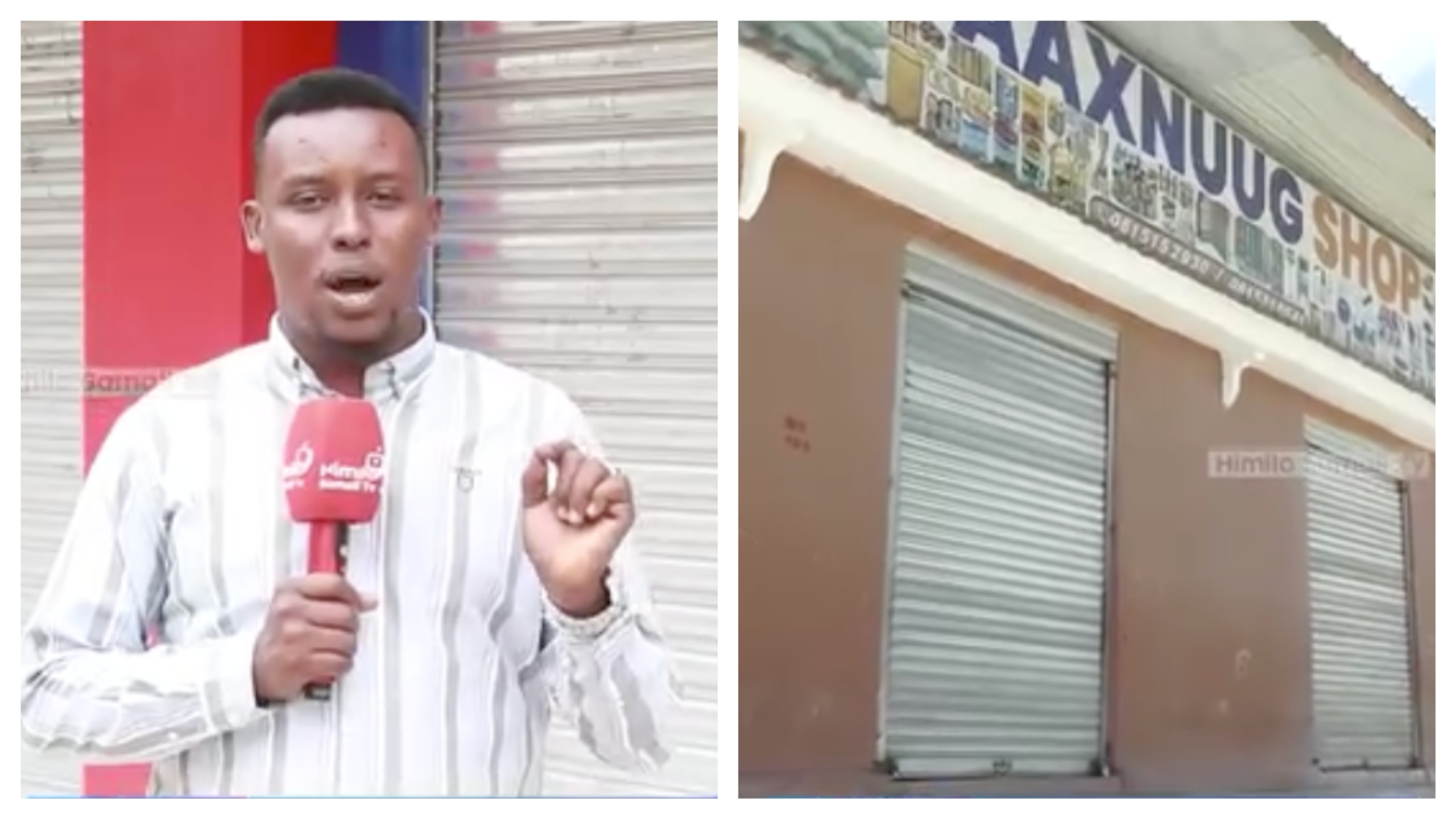MOGADISHU, Somalia, 19 November 2024 – The Somali Journalists Syndicate (SJS) has successfully trained 12 women journalists from Puntland and SSC-Khaatumo regions to enhance their capacity for effective media reporting and human rights advocacy.
The two-day training, held on November 10–11 in Lasanod, the administrative capital of SSC-Khaatumo, brought together participants from various towns and cities in the two regions. SJS chose Lasanod as the venue following a request from local journalists, particularly in light of the region’s recovery from last year’s deadly conflict between SSC-Khaatumo and Somaliland forces, which resulted in civilian casualties and mass displacement.
Abdirahman Yusuf Abdi, Director General of the SSC-Khaatumo Ministry of Information, welcomed the SJS team to Lasanod, joined the training’s opening session, and presented certificates to participants at the conclusion.
“We welcome SJS as the first organization to come to our region to build the capacity of women journalists. Our women need training, support, and development opportunities. Among the participants were journalists from state media who have never before received such training on human rights reporting,” said Abdirahman Yusuf Abdi.
Mukhtar Abdi Jama, leader of the SSC-Khaatumo Journalists Organization, expressed gratitude to SJS for reaching remote areas like Sool, where many organizations hesitate to operate.
“I thank the SJS leadership for accepting our request to provide this training for local women journalists. Journalists in this region face many challenges, including security risks and a lack of capacity-building opportunities as many organisations are unwilling to come here. We look forward to continuing our collaboration with SJS in advocating for media freedom and strengthening the skills of journalists in Somalia,” he said.
Testimonials from Participants
Najma Aden, a freelance journalist who traveled 240 kilometers by road from Garowe to attend, highlighted how the training equipped her with new skills.
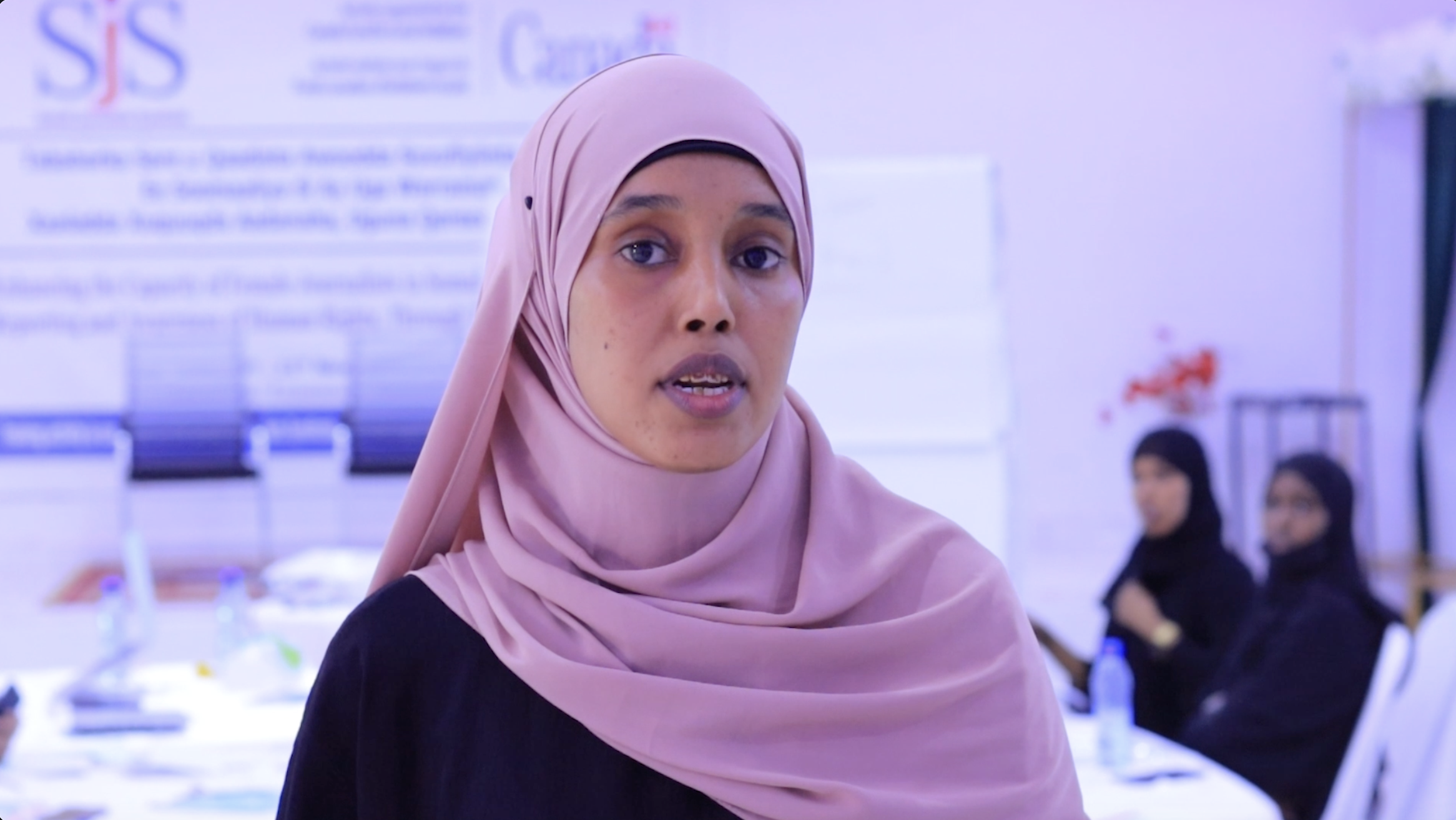
“As a woman and a freelance journalist I have no enough resources, therefore I applied for this training and was fortunate to be selected. Today, I am returning with new skills in editing video and audio content as well conducting a successful reporting. SJS trainers introduced us to accessible software tools for freelancers, enabling me to better collect stories, and report human rights stories in my area,” Najma said.
Similarly, Raho Mohamed Abdi, who traveled from Buuhoodle, emphasized the importance of uncovering underreported stories.
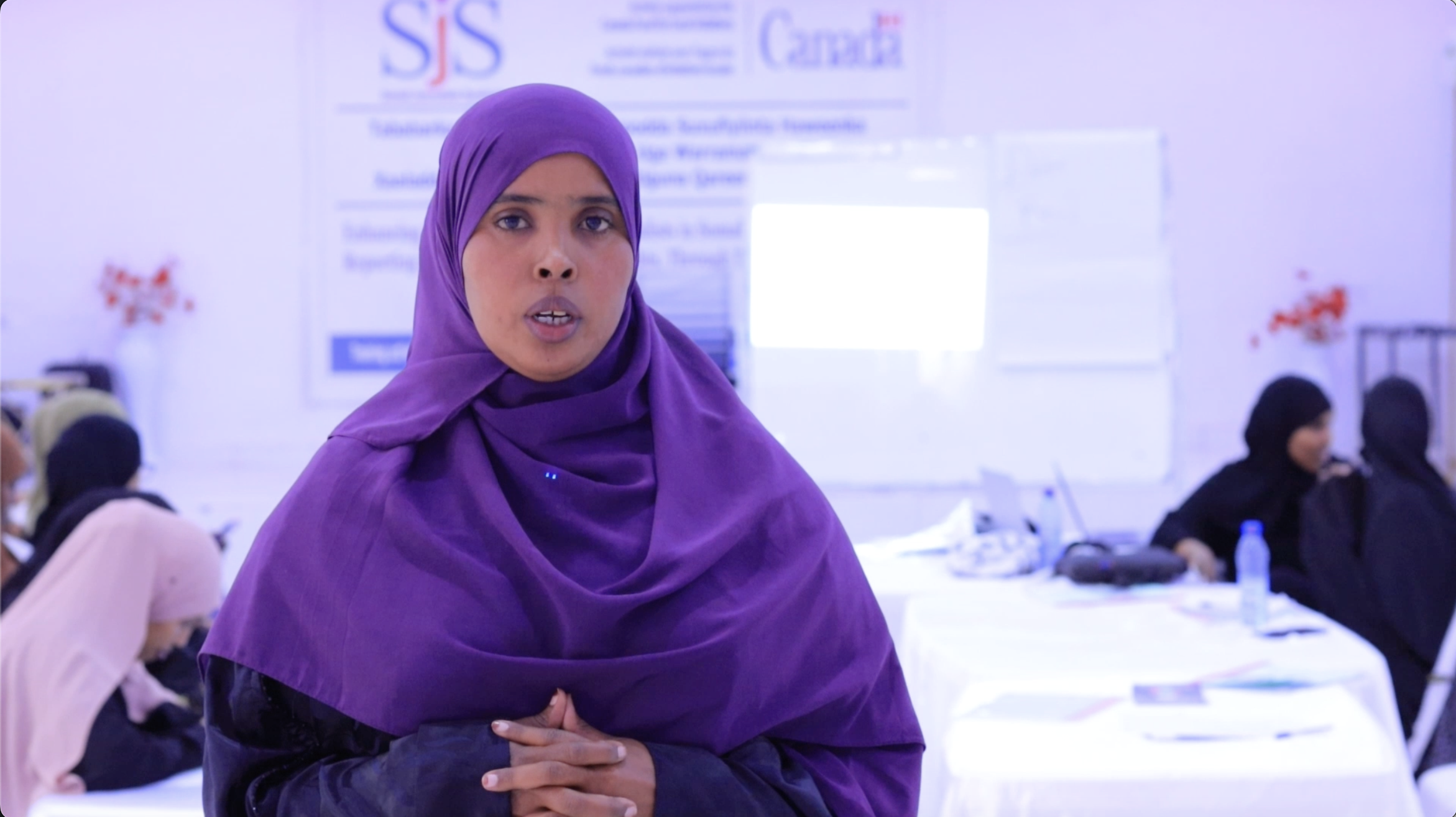
“One key takeaway for me is how to deeply investigate and highlight human rights issues affecting vulnerable and voiceless communities—stories that are often overlooked by mainstream media,” she said. “I see my role not only as a reporter but also as an advocate.”
This training is part of a project funded by Canada’s CFLI (Canada Fund for Local Initiatives), which aims to enhance the capacity of female journalists for effective media reporting and advocacy towards human rights.
Launched in 2021, the initiative focuses on equipping women journalists with the skills to document and report issues affecting marginalized communities. This year’s program aims to train 20 more women journalists, with the ultimate goal of improving human rights documentation, increasing public awareness, and advancing gender equality.
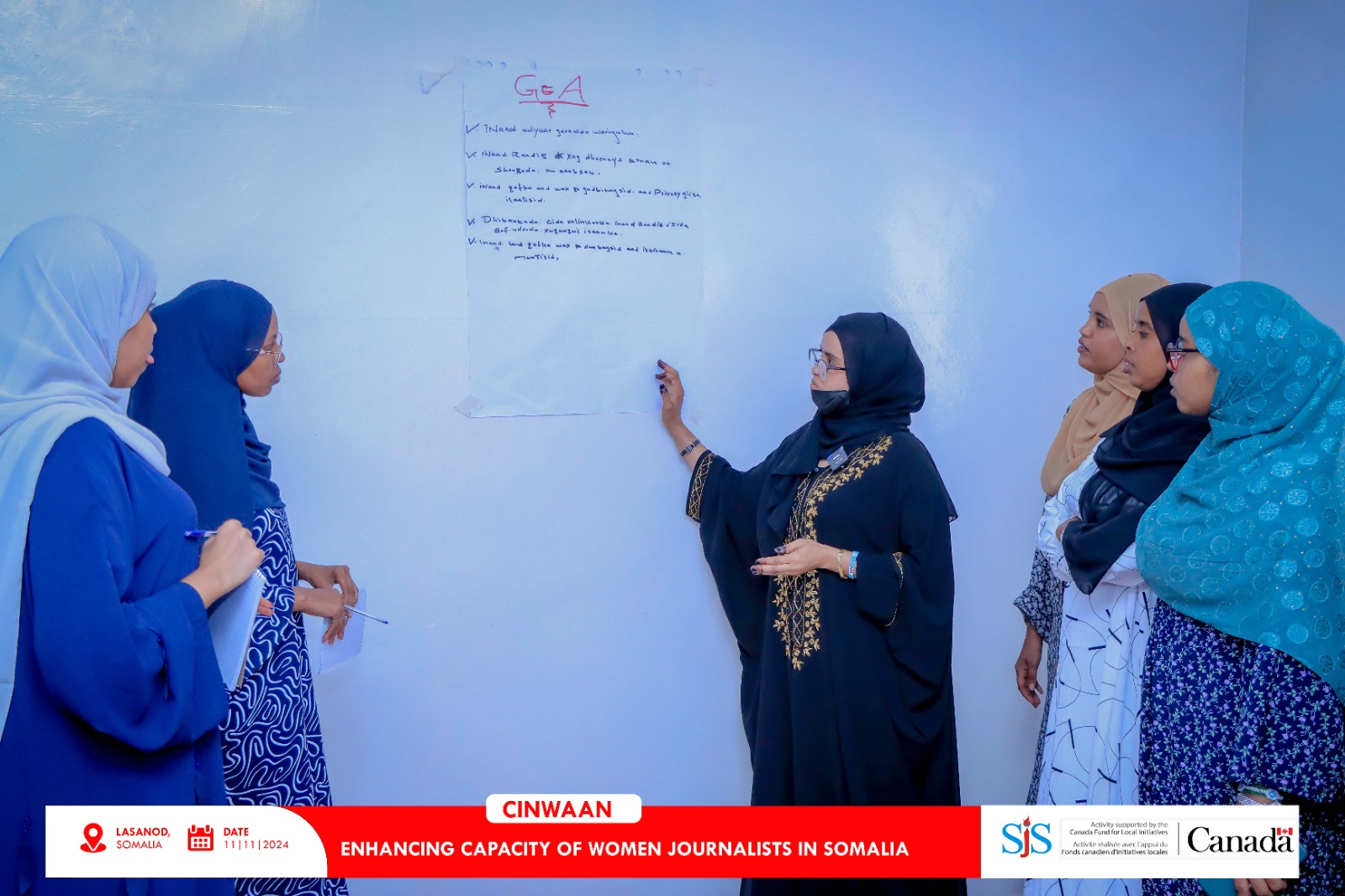
SJS Secretary-General Abdalle Mumin commended the participants and local authorities for their collaboration during the training.
“I thank the participants and Lasanod authorities for their cooperation. During our team’s visit, SJS team witnessed the aftermath of the recent conflict that devastated Lasanod, displacing thousands of civilians. The timing of this training on human rights reporting for local women journalists was critical to equip them with the tools needed to carefully document and report human rights related stories,” said Mr. Mumin.
“We are proud to have trained 12 women journalists from Puntland and SSC-Khaatumo, enabling them to advocate for human rights through their reporting. This achievement underscores our commitment to empowering women journalists in Somalia who face specific challenges,” Mr. Mumin. added.
